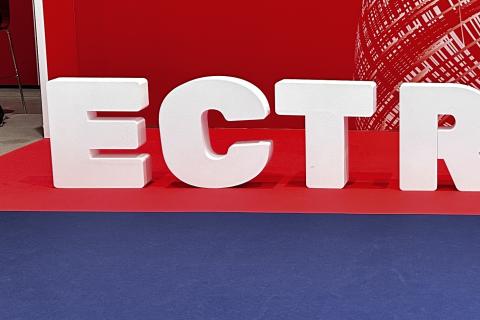Meet 5 Canadians on the Cutting Edge of MS Research
Canadians have a lot to be proud of, and at the top of our list are our dedicated MS researchers! Canadian researchers are global leaders in studying MS. They improve what we know about MS, how we treat it, and bring us closer to a world free of the disease.
One part of our mission is to help researchers make progress faster. With the support of fundraisers, donors, and corporate sponsors, we’ve invested over $218 million dollars since 1949 to do just that. We’ve helped Canadian researchers lead advancements in areas like:
-
Magnetic resonance imaging (MRI) to improve diagnosis and disease management
-
Genetics of MS
-
Repair and regeneration of nerve fibers and neuroprotection (protecting nerve fibers from being damaged)
-
Rehabilitation approaches
-
Development of new treatments
Their work has the potential to transform how the global scientific community understands this disease and to improve the lives of those affected by MS. Let us introduce you to some of these Canadian researchers and what they do.
Dr. Catherine Larochelle
“The grant from MS Canada at this early stage of my career is of tremendous importance. It helps me develop my independent research program in MS, foster collaborations, and makes it possible for my team to pursue the MS project we are passionate about.”
As a neurologist and Clinical Associate Professor at the Centre Hospitalier de l’Université de Montréal (CHUM), Dr. Catherine Larochelle specializes in helping people affected by MS. However, her work goes beyond patient care, she’s also a dedicated scientist. Dr. Larochelle is trying to understand how the immune system contributes to MS. Her goal is to one day use this information to help find new treatments for MS.
Dr. Larochelle’s newest project looks at how diet can impact gut bacteria and influence inflammation in MS. Specifically, Dr. Larochelle and team will look at how reducing the amount of methionine (an amino acid) in the diet could decrease inflammation and improve MS symptoms.
This research will help us understand how diet, gut bacteria, and inflammation in MS connect. Knowing more about how the disease works will help us identify new treatments for MS.
Dr. Marcia Finlayson
“My mother has MS and I have watched her try to access services that help her manage her symptoms. Many of the questions I have asked over time, and the studies I have conducted have been in direct response to the challenges I have watched her try to address. She continues to inspire my work every day.”
Dr. Marcia Finlayson is an occupational therapist and Professor at Queen’s University. Her research interests include fatigue management, fall prevention, and long-term care.
Dr. Finlayson’s recent project looks at when, where, and how rehabilitation services are provided in Canada. This will help us understand what rehabilitation care is received by Canadians living with MS and how we can improve it.
Dr. Dalia Rotstein
“I first learned about MS when my grade 7 class participated in MS Canada’s annual MS Read-a-Thon. I knew I wanted to help people with neurologic disease from watching my grandfather deal with motor impairment in the aftermath of polio infection which he experienced as a young man.”
Dr. Dalia Rotstein is a neurologist at St. Micheal’s Hospital and Assistant Professor at the University of Toronto. She’s also a former MS Read-a-Thon participant! Dr. Rotstein is particularly interested in understanding how sex, ethnicity, and migration impact someone’s risk for developing MS and how the disease might progress.
Her newest project looks at how and when MS develops following an Epstein-Barr virus (EBV) infection. Recent studies have shown that EBV is a necessary and early trigger of MS. This research could help create strategies for early and effective prevention of MS.
Dr. Carlos Camara-Lemarroy
“I recognize there is still a long way to go in terms of meaningful therapies for restoration of function in neurodegenerative diseases such as MS.”
Dr. Carlos Camara-Lemarroy is a neurologist and Assistant Professor at the University of Calgary. His research focuses on:
-
Neuroprotection - ways we can shield and support the nervous system from damage caused by MS
-
The gut-brain axis - how our digestive system is connected to brain health
-
Biomarkers - indicators that help diagnose and monitor MS
Currently, Dr. Camara-Lemarroy is studying a non-drug-based treatment approach called remote ischemic preconditioning (REIP). He hopes to learn if REIP can promote repair and regeneration in MS. If effective in people, REIP could potentially be a new treatment option for people living with MS.
Dr. Anastassia Voronova
“With MS Canada’s support, I hope to create a new and important MS research program that will directly impact our understanding of neural stem cell function in MS. This will also allow me to continue establishing myself as an independent principal investigator in Canada.”
Dr. Voronova is an Assistant Professor at the University of Alberta. She studies repair and regeneration strategies in MS. With our funding, Dr. Voronova discovered that treatment with fractalkine (a molecule) could enhance the repair of the protective coating around nerve fibers (myelin) in the brains of mice with a disease like MS. These discoveries will be important for the future development of MS therapies. Check out her video below:
- Log in to post comments




